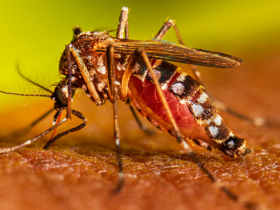United States – The infant mortality rate increased nearly 13% after the state legislation enacted in 2021 to virtually eliminate abortion access in Texas; in contrast, it increased by just 1.8% rise across the nation, a survey reveals, as reported by HealthDay.
Impact on Birth Defects
The number of Texan babies whose demise was particularly attributed to birth defects also rose by 22.9% in 2022, the year that followed the placing of this ban into practice. In the rest of the United States, such deaths have reduced by 3.1% compared with the same period last year and in other developed countries, said analysts at the Johns Hopkins University in Baltimore.
The results might have further implications for practices outside Texas, given the U. S. Supreme Court’s reversal of Roe v. Wade in July 2022.
Expert Insights
“The [study] results suggest that restrictive abortion policies may have important unintended consequences in terms of trauma to families and medical cost as a result of increases in infant mortality,” said researchers led by Alison Gemmill. She’s an assistant professor of population, family, and reproductive health at Hopkins.
In their work, Gemmill’s group examined information on all of the logged infant mortalities from the state of Texas and 28 other states for 2018 through 2022. They chose the period from March to December 2022 because it is only at this time when fetuses and newborns would have been affected by the 2021 Texas abortion ban.
Altogether, there were ‘an excess of 216 infant deaths’ in Texas between March and December in 2022, according to Gemmill’s team.
It explained that deaths caused by Birth Defects increased significantly, and this was deemed worrying by the researchers.
“Deaths involving congenital malformations, which are one of the leading reason of infant mortality in the U.S. and account for more than 1 in 5 infant deaths, may increase due to forced continuation of pregnancies involving defects or other anomalies,” they wrote.
It also noted that the forced continuation of pregnancy may also increase financial and emotional stress that could make women vulnerable to other risk factors that may lead to infant mortality, especially among poor and less privileged groups, as pointed out by Gemmill and other colleagues.
Three scholars in reproductive and child health in a related journal editorial noted that the Texas study ‘contributes to expanding the body of evidence demonstrating the direct damages on our communities by abortion bans.’
Community Impact
Other information provided by Dr. Ghazaleh Moayedi and Aketch Osamb of Pegasus Health Justice Centre, Dallas and Dr. Atsuko Koyama of the University of Arizona Phoenix reveals that Texas’ 2021 complete ban on the procedure adversely affects women and their unborn babies.
“Researchers from 2 Dallas hospitals, including one of the most busiest labor and delivery units in the country, illustrate a significant increase in maternal morbidity [illness] with subsequent poor fetal outcomes” soon after the ban was enacted, they wrote, as reported by HealthDay.
And they expect this is just the beginning of a domino effect of new studies at a national level.
“In the coming years, as more people continue to be harmed by abortion bans across the country, we anticipate that more research will illuminate what Texans already know to be true: abortion bans harm everyone,” the experts said.















